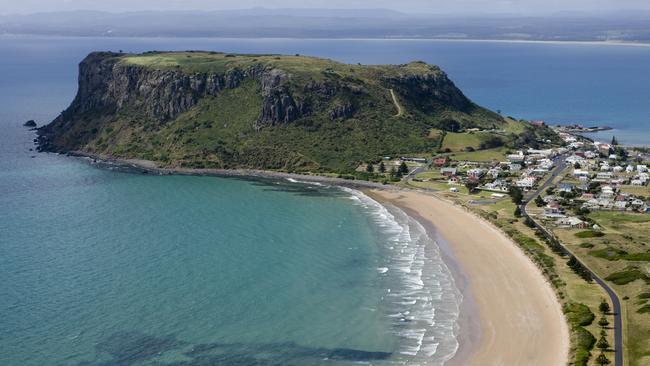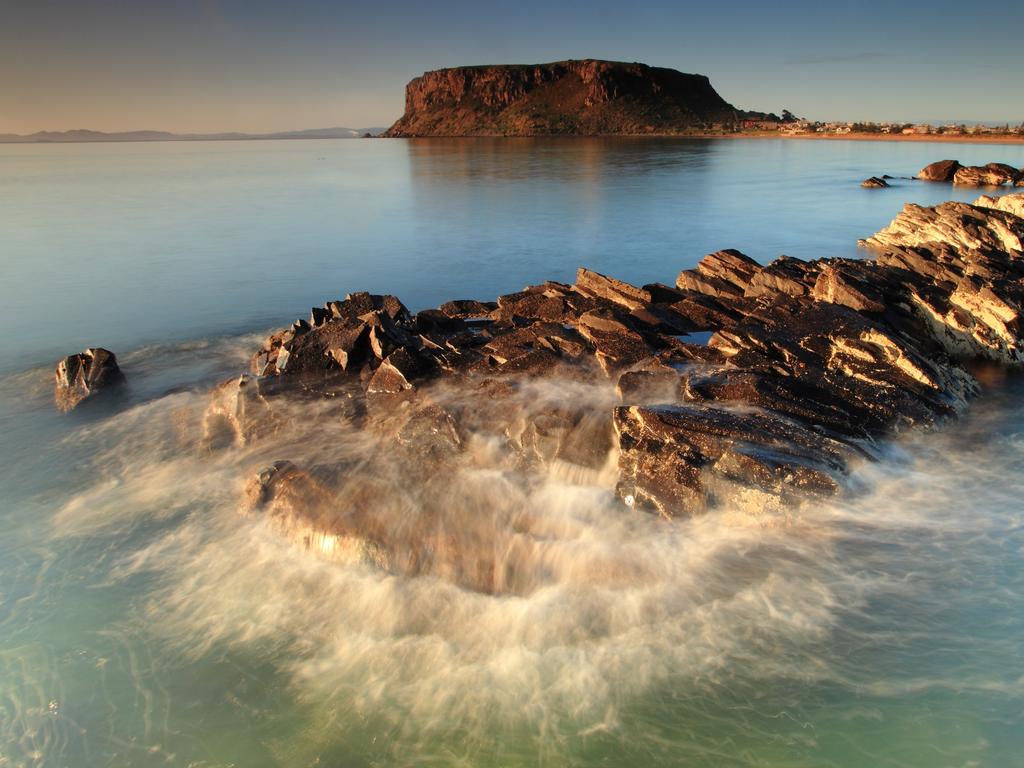Locals celebrate win over Tasmanian wind farm
Communities fighting wind farms across the country should take heart from a proponent’s decision to walk away from a project in Stanley, Tasmania, ‘jubilant’ locals say.

Communities fighting wind farms across the country should take heart from a proponent’s decision to walk away from a project in Tasmania, “jubilant” locals say.
Ark Energy has dropped its plans for a 50 megawatt wind farm on Stanley Peninsula, in Tasmania’s northwest, after more than two years of community opposition.
The company cited the project’s small scale as its reason for withdrawing the project from the planning process, saying it “no longer fits with … priorities”.
However, locals who campaigned against the project, said on Monday they believed the company was responding to their push for “scenic protection” for the peninsula.
“There’s a bit of jubilation in the town – people feeling very relieved that they (Ark) have realised it’s not going to be a viable option for them,” said accommodation owner Kerry Houston.
“The local council only a few days ago approved scenic protection for the Stanley Peninsula to progress to the Planning Commission for a decision. So I think they (Ark) have just seen the writing on the wall that this is all too hard. This place is seen by the locals as too special and they realise they’ve picked the wrong place.”
Ms Houston said the win should encourage other communities battling wind farm developments, but only if they identified planning mechanisms that could assist them.
Locals opposed to the 12-turbine project had commissioned their own scenic values report and encouraged the council to do so, leading to the council’s protection push.
They had also succeeded in having the site short-listed for inclusion on the national estate.
“You’ve got to work within your planning schemes and the legislation available to you,” Ms Houston said. “You can protest until you’re blue in the face but that’s not going to stop them – you need robust planning.”
Another key factor had been the refusal of some landowners to provide consent for necessary transmission lines.
Ark insisted the withdrawal of its development was based on priorities. “With a growing national portfolio of renewable energy projects, Ark Energy is focusing on its larger utility-scale wind energy projects,” a company statement said.
“As a result the company has made the difficult decision to cease development of the (Stanley) Western Plains Wind Farm … The project was the smallest in Ark Energy’s portfolio …
“Progress in the renewable energy industry and the need for more renewable energy capacity to be delivered sooner has accelerated. The size, wind turbine capacity and total output capacity of projects has been increasing rapidly.
“While the tip of the Stanley peninsula is an exceptionally windy location and the world leading wind resource makes it an excellent site for a wind farm, the scale of the project no longer fits with the priorities of Ark Energy’s portfolio.”
Ms Houston noted Ark had not ruled out selling the project to another proponent, but said it was hoped the prospect of scenic protection of the peninsula would deter any buyer.
Tasmania has been experiencing a “wind rush” of turbine developments, as it pursues a proposed Marinus Link second power interconnector that would allow it to export more energy to the mainland.




